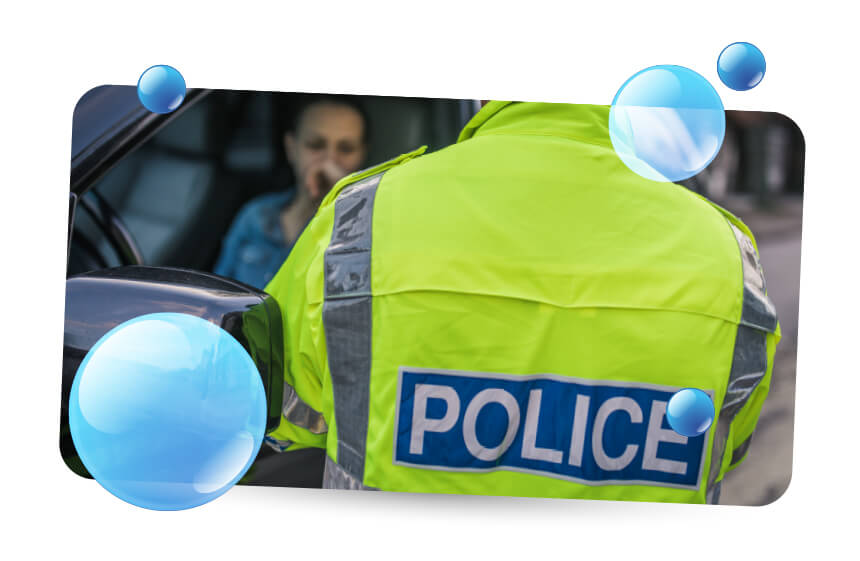Driving Without Insurance: Understanding the Penalties and Legal Consequences of Driving Uninsured
25/07/2023 00:00:00by Mark McKenna25/07/2023 00:00:00Driving Without Insurance: Understanding the Penalties and Legal Consequences of Driving UninsuredBluedrop Services

Driving without insurance is a serious offence that can have severe legal and financial repercussions. It's a nightmare scenario that can quickly turn your fleet upside down. Here we’ll explore the potential dangers, the harsh penalties, and the sobering realities of driving uninsured in the UK. Buckle up and let's delve into why neglecting insurance coverage is a gamble you can't afford to take.

Can I drive without insurance?
First things first, let's talk about the elephant in the room – it's illegal. That's right. Driving uninsured is a serious offence. Car insurance isn't just some optional extra; it's there to protect you and others in the event of an accident. Without it, you're playing a dangerous game. While a conviction for driving without insurance is not imprisonable, it will result in an IN10 endorsement on your licence.
It's important to remember that if you're ever involved in an accident without insurance, you may be held responsible for any injury-related costs and other damages that you cause. The consequences of not having car insurance greatly outweigh the potential savings.
What is the maximum fine for driving without insurance?
Driving without insurance could leave you with £300 in fines. That's a hefty sum to pay for trying to save a few pounds on insurance premiums. On top of that, you'll come away with 6 penalty points on your licence that stay on your record for 4 years.
But the consequences of driving without insurance don't stop there. If the case is brought to court, you could be hit with an unlimited fine that can wreak havoc on your finances. And let's not forget about the potential disqualification from driving, which may cause major disruptions to your daily activities and business operations. It's not just about the financial penalties either; the police have the authority to seize and ultimately destroy your vehicle if you're caught driving without insurance.
And let's not forget about the impact it can have on your future insurance rates. It's like a never-ending punishment that keeps on giving.
Does a comprehensive insurance policy insure me to drive any car?
If you have comprehensive insurance for your car, it might include driving other cars (DOC) coverage. However, this option is now less common and typically limited to emergency situations. While DOC allows you to drive another insured vehicle, in most cases it is limited to third-party only coverage (TPO), not comprehensive coverage.
No matter what type of insurance you have, never assume you can drive another vehicle. Make sure to check your policy and understand its limitations before assuming full protection.
Do I need car insurance if I park my car on the road and don't drive it?
Absolutely. According to Section 143 of the Road Traffic Act, having car insurance is a legal requirement for anyone who uses, causes, or permits a vehicle to be used on the road. Surprisingly, even if your car is simply parked on the road, it falls under the category of 'uses' and requires insurance coverage.
But why is insurance necessary when your car is parked? Well, even when your vehicle is stationary, it is still at risk of being involved in an accident. Another vehicle could accidentally collide with your parked car, causing damage that may require costly repairs. To safeguard yourself from potential financial burdens and ensure you're in compliance with the law, having car insurance for your parked vehicle is essential.
Driving without tax
Vehicles are generally not allowed on public roads without paying road tax, but there are exceptions. For instance, if you have a pre-booked MOT test, you can drive to your appointment without road tax.
Remember that vehicle taxes and insurance are separate legal requirements. So, if you think you can avoid taxes and still be in the clear, think again. It's essential to ensure your vehicle has both tax and insurance coverage to avoid legal trouble.
What should I do if I’ve been hit by an uninsured driver?
It's frustrating, to say the least. However, you may still have some options available. Here are some tips:
- Document the accident thoroughly, including the names of any witnesses and their contact details, as well as pictures and videos of the scene. This will ensure your claim is handled fairly.
- If you have uninsured driver coverage as part of your insurance policy, it can help compensate for damages and medical expenses.
- Immediately notify the police if the other driver isn't insured or refuses to share their insurance information. Don't let someone else's negligent behaviour ruin your finances.
- Contact your insurance provider right away. They will have access to the Motor Insurance Database (MID) and will be able to find out if the other driver has no car insurance.
Drive with confidence knowing your fleet is protected
If you own a business with company vehicles, it's absolutely crucial to ensure that all your drivers are properly insured. Not only does it protect your drivers and vehicles, but it also mitigates legal risks and financial liabilities for your business. Investing in a comprehensive fleet insurance policy that covers all your company's vehicles and drivers is a smart move that can save you headaches down the line.
So, before you hit the road, take a moment to reflect on the risks you're taking by driving without insurance. It's not worth the financial burden, legal troubles, and sleepless nights. Protect yourself, protect others, and make sure you're not driving uninsured. It's a small price to pay for peace of mind and a safer journey on the road.
Return to blog menuWant to find out more about Bluedrop's Fleet Insurance?
Call our friendly team now for the right insurance cover - at the best price
+441489780491
Calls recorded for training and quality.



 Privacy and Cookie Policy
Privacy and Cookie Policy